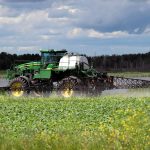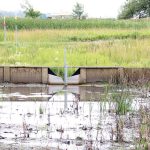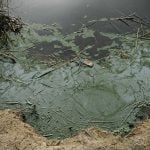
Tag Archives water management

Are enhanced efficiency fertilizers the right fit for your fields?
Fertilizer efficiency was a topic of discussion at a 4R field day this summer

Bioreactors in tiled fields could themselves benefit from draining
Bioreactors are meant to filter nitrogen from tile water to help with runoff nutrient loads, but drying them out from time to time might increase their effectiveness

Turning excess water into an asset with consolidation drainage
Farmers in the “prairie pothole” region are using its natural storage capacity to their advantage

Blue-green algae toxicity can cause sudden death in cattle
Animal Health: Water quality is an important issue when the temperatures start to rise

Western Canadian agriculture’s growing thirst
Editor’s Boss: Atmospheric dryness is adding a third dimension to the moisture equation driving Prairie crop yields and wildfires

Letter to the Editor: Selenium, science and the risk of overstating harm

ReinCloud 3 app offers improvements for irrigators
Nebraska’s Reinke Manufacturing updates its software for farm managers

Control drainage costly, but beneficial
Tiling can improve soil conditions, accelerate warming, boost crop growth and reduce nutrient runoff

Tile drainage can help manage nutrients as well as moisture
A South Dakota producer says improved draining not only increases plant health but also keeps nutrients on the field

How plants conserve moisture in dry conditions
Plants do best when they have a little more moisture than they immediately require


